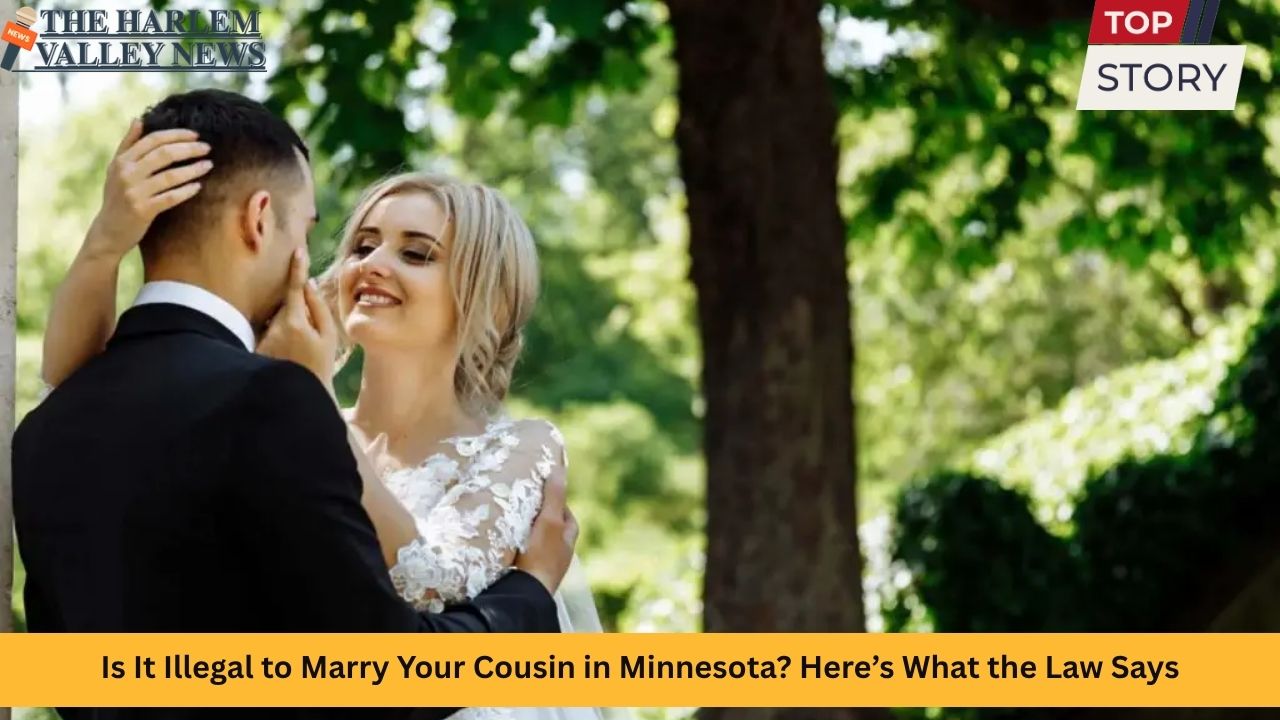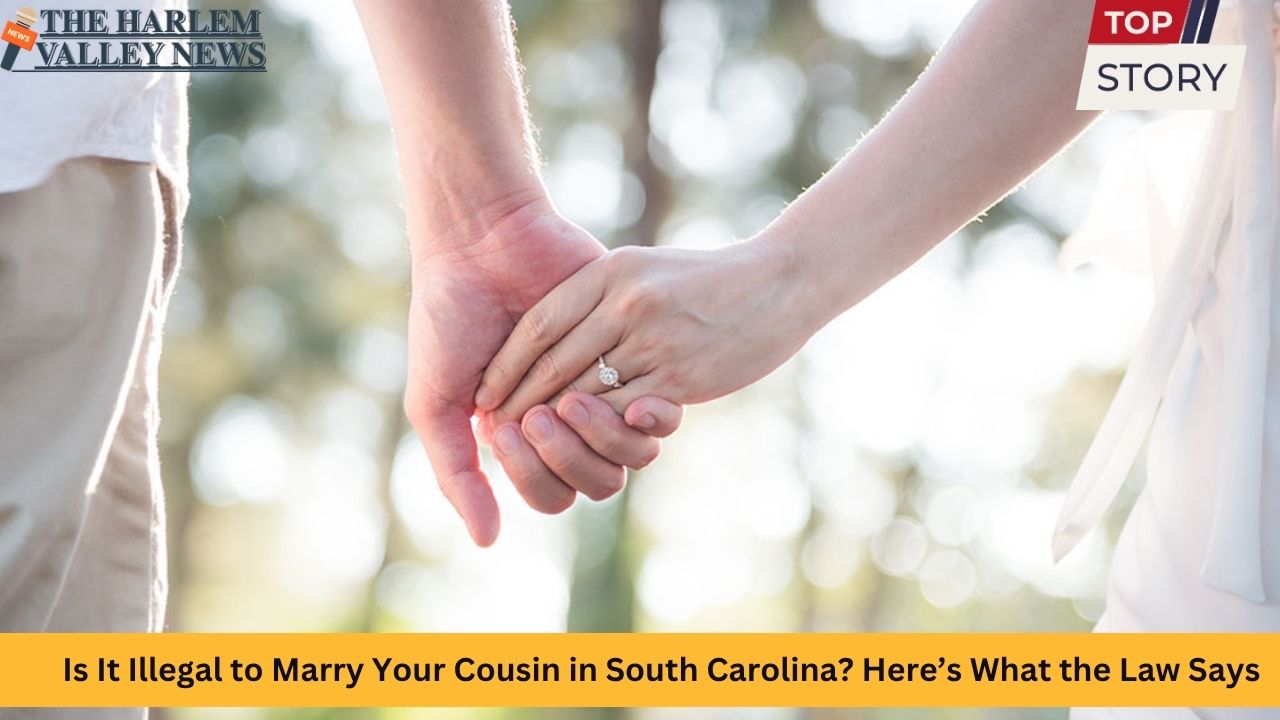Marriage laws vary widely in the United States, and one area that often generates curiosity and confusion involves marrying a cousin. In some states first‑cousin marriage is entirely legal, while in others it’s expressly forbidden. If you live in Minnesota—whether in Minneapolis, St. Paul, Rochester, Duluth, or dozens of smaller towns—you may be asking: is it illegal to marry your cousin in Minnesota? This article explores that question in depth, clarifying state statutes, relevant historical attempts to change the law, public policy considerations, community perspectives, possible exceptions, and what happens if a couple legally marries out of state.
What Minnesota Statutes Say About Cousin Marriage
Minnesota law clearly prohibits a civil marriage between first cousins—or between an uncle or aunt and their niece or nephew—unless a recognized indigenous cultural custom is involved. This prohibition applies regardless of whether cousins are related by half or whole blood, or by adoption. The prohibition is part of the state’s fundamental public policy on marriage, and falls into the list of “prohibited civil marriages.” A marriage between first cousins is considered void from the outset. In addition, a marriage entered into while another marriage is still unresolved, or a marriage involving minors under 18 without proper consent, is similarly prohibited.
Why Does Minnesota Prohibit First‑Cousin Marriage?
The rationale behind this prohibition has roots in both historical moral concerns and modern genetic risk reasoning. Historically, many mid‑western states adopted anti‑cousin‑marriage laws during the late nineteenth and early twentieth centuries amid rising interest in eugenics and heredity. Minnesota’s prohibition reflects those patterns. The law’s language also makes an exception for established customs within aboriginal communities, reflecting sensitivity to certain native cultural traditions.
Comparison: Minnesota vs. States Where Cousin Marriage Is Legal
Across the U.S., approximately eighteen states plus Washington, D.C., allow first cousins to marry under general law. States such as New York, California, Florida, Georgia, Massachusetts, and Connecticut permit first cousins to wed, cohabitate, and engage in sexual relationships without criminal liability. In contrast, Minnesota stands among roughly thirty‑two states where first‑cousin marriage is void and prohibited. Even in states where such marriage is allowed, it is still relatively rare in practice.
Attempted Legislative Repeal in Minnesota
In Minnesota, advocates have occasionally sought to repeal the ban on cousin marriage. For example, a former state legislator introduced a bill in the early 2000s proposing repeal. That bill ultimately failed in committee. Supporters of repeal highlighted that certain immigrant communities in Minnesota—such as Hmong and Somali‑American populations in Minneapolis and St. Paul—have cultures where cousin marriage may occur and was historically accepted. They argued that the ban had no scientific justification and hindered cultural integration. However, opponents countered on moral or social‑order grounds. To date, the prohibition remains intact.
Is Marriage to a Cousin Ever Permitted in Minnesota?
The law includes a narrow exception for marriages that are permitted by “established customs of aboriginal cultures.” This exception applies only to recognized indigenous communities whose traditional marriage customs may include certain types of cousin unions. Outside of that cultural exception, first‑cousin marriages are flatly prohibited. Even in those indigenous contexts, entering into a marriage that is otherwise forbidden can conflict with state regulation unless customary law is formally acknowledged.
What If You Married a Cousin in Another State Where It’s Legal?
If Minnesota residents or former residents legally marry a first cousin in a state where it’s allowed, their marriage will not be recognized in Minnesota. The marriage would be void under Minnesota law. This means housing, spousal benefits, inheritance rights, tax filing status, divorce rights, and other legal consequences tied to a valid marriage would not apply. Still, couples in that situation are not criminally prosecuted simply for cohabiting or marrying—Minnesota’s incest statute criminalizes sexual relations only for closer relationships than first cousins (e.g. siblings, parent/child). First cousins engaging in consensual sexual or domestic life do not face criminal charges, but their marriage is treated as legally nonexistent.
Is It Criminal to Marry Your Cousin in Minnesota?
Minnesota classifies incest as sexual activity with a blood relative closer than first cousins—such as siblings, parent/child, or aunt/uncle with niece/nephew. First‑cousin relationships fall outside that criminal scope. In practice, the state does not charge first cousins with incest. The legal issue is civil invalidity of the marriage contract—not punitive criminal penalty. However, if parties falsely represent their relationship when seeking a marriage license, that could raise issues of fraud or misrepresentation.
Population & Cultural Context in Minnesota
Minnesota has more than five million residents, with around two‑thirds living in the Twin Cities metropolitan area—Minneapolis and St. Paul. The state’s diverse population includes of Hmong and Somali communities, especially in neighborhoods like the Frogtown area of St. Paul and parts of south Minneapolis. While cousin marriage is culturally rare even in these communities, educators, legislators, and community leaders have cited it as one reason to debate changing the law. That debate has not prevailed thus far. Overall, surveys suggest only a very small fraction—a fraction of one percent—of marriages in Minnesota involve first cousins.
Health & Genetic Considerations
Medical research indicates that children born to first‑cousin couples face a slightly elevated risk of certain recessive genetic conditions. The additional risk is often estimated at around one to two percentage points above the baseline risk faced by unrelated couples. In real life, the absolute increase in risk is relatively low, but not negligible. That said, similar risk levels are present for women giving birth over the age of forty. Many states that do allow cousin marriage require genetic counseling as a condition for marriage. Minnesota does not allow first‑cousin marriage regardless of whether prospective spouses seek counseling.
Public Policy and Ethical Considerations
Proponents of allowing first‑cousin marriage often argue as follows:
- It respects cultural diversity and religious freedom, including immigrant communities where cousin marriage is traditional.
- The actual public health risk is modest and manageable through counseling.
- Civil freedom to marry should extend to consenting adults.
Opponents typically respond:
- Maintaining a social prohibition reinforces broader norms against close‑relative marriages.
- Even small genetic risks may have cumulative impact across generations.
- Allowing exceptions may create legal complexity and open door to broader prohibited kinship unions.
What Steps Are Required to Marry in Minnesota (General Procedure)
To legally marry in Minnesota, couples must obtain a marriage license from any county’s license office. They must be at least eighteen years old (or between sixteen and seventeen with parental consent), not currently married, and meet identity and residency requirements. The license is generally valid for six months. Premarital education can reduce the license fee. A licensed officiant or civil official must solemnize the marriage in the presence of two witnesses. Invalid marriages—such as those between first cousins—are automatically void and not recordable.
Legal Effects and Real‑World Implications
If two first cousins attempt marriage in Minnesota, any attempted ceremony will result in no legal status. They will not be considered married for tax purposes, social security, inheritance, spousal medical decisions, or eligibility for divorce. Should they relocate to another state where such marriages are accepted, they could be recognized there—but rights in Minnesota would remain absent. Children of first‑cousin couples born and raised in Minnesota remain legally legitimate, but the parents themselves may lack marital legal rights.
International and Interstate Factors
If a cousin marriage takes place in another country where it is legal, Minnesota will generally refuse recognition of that marriage if either spouse was a resident at the time of marriage. Some states may recognize out‑of‑state marriages performed before the parties became residents, but Minnesota’s law usually voids such marriages if a resident was involved. If neither party resided in Minnesota at the time of marriage, policy may differ, but that scenario is uncommon and legally complex.
Real Cases & Court Rulings
There has been no well‑known Minnesota Supreme Court case on cousin marriage itself. However, other cases addressing same‑sex marriage or marriage validity have emphasized Minnesota’s power to define what constitutes a valid civil marriage. In general, Minnesota courts accept that state law defines prohibited unions and that void marriages must be treated as nonexistent, not just voidable. No Minnesota court has ruled that a first‑cousin marriage performed elsewhere must be recognized.
What Shoppers, Couples & Communities Should Know
- If you live in cities like Rochester, Bloomington, Duluth, or Moorhead, the same statewide prohibition applies.
- Adult first cousins contemplating marriage must understand that such unions are not legally possible under Minnesota law—even if accepted culturally or medically.
- If pursuing legalization, proposals would need legislative approval—not judicial—because the statute explicitly declares void any first‑cousin marriage.
- Community advocates may push for repeal, but so far the policy stands.
Cultural and Community Perspectives
In cities such as Minneapolis and St. Paul where cultural diversity is rich, the cousin‑marriage prohibition has periodically resurfaced in public conversation. In Hmong and Somali‑American communities, family elders and religious leaders sometimes acknowledge that cousin marriage may happen in origin countries, but largely discourage it in the U.S. younger generation. Thought leaders emphasize health education, genetics awareness, and respect for state law. In indigenous communities, tribal customs may have different standards—but state law only recognizes traditional customs under limited conditions.
Summary: Answer at a Glance
- First‑cousin marriage is illegal and void in Minnesota.
- The state prohibits marriages between first cousins by civil statute.
- Such marriages are considered void—even if contracted legally elsewhere—and Minnesota does not recognize them for legal purposes.
- There is no criminal incest charge for first‑cousin sexual relations, but the marriage contract itself has no legal effect.
- Attempts to repeal the ban have been made, but none were successful.
Conclusion
In Minnesota, marrying your first cousin is not permitted under state law. The marriage is statutorily void and carries no legal recognition, even if performed legally in another jurisdiction. While some states allow first‑cousin marriage—with or without conditions such as genetic counseling—Minnesota is firmly in the camp that prohibits it. That prohibition reflects a blend of historical, cultural, public policy, and genetic‑risk concerns.
For individuals or couples considering such a path, the most reliable approach is to consult legal counsel and fully understand that Minnesota will not view the union as valid in state law. Public dialogue on this topic continues, especially within diverse communities where cousin marriage has historical precedent—but as of now, the law is clear, and the prohibition stands.

















Leave a Reply